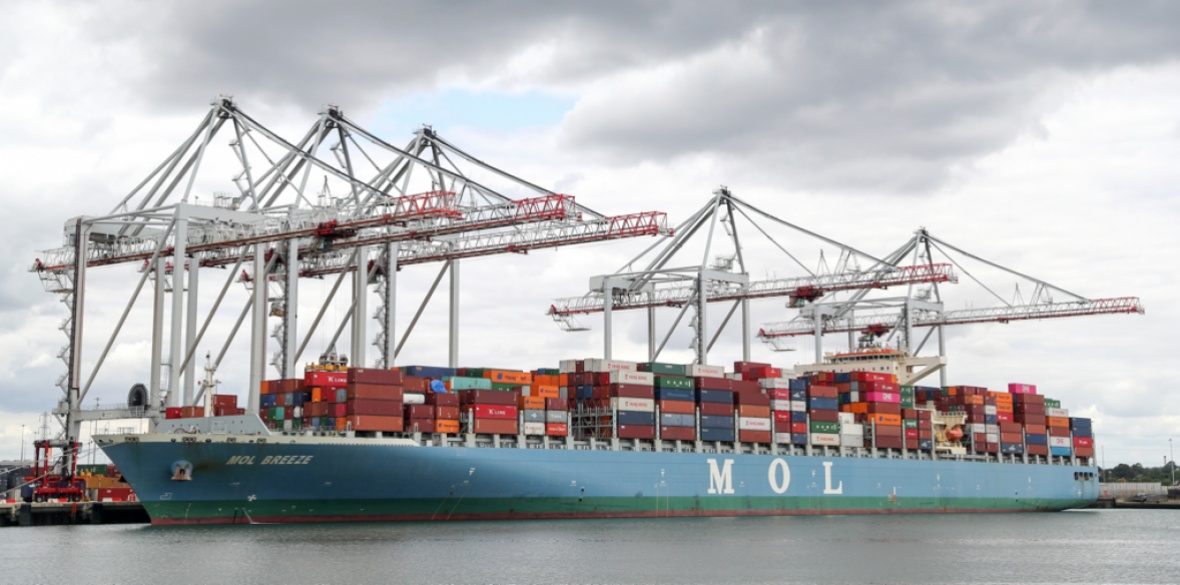This is the last article you can read this month
You can read more article this month
You can read more articles this month
Sorry your limit is up for this month
Reset on:
Please help support the Morning Star by subscribing here
A FEW days before the seafarers’ minimum wage talks started in Switzerland, I received a troubling phone call.
It came from our Liverpool-based ship inspector. His International Transport Workers’ Federation (ITF) inspector duties had taken him to a cargo vessel moored at Bromborough on the Mersey.
There he had found two teenage Indian sailors who appeared to be malnourished, underpaid and terrorised by the rest of the crew.
Over the next few days, their situation grew more disturbing. It became clear that the young Indians’ families had paid thousands of pounds to secure their jobs, that each had a fake and a real contract of employment with a huge variance in pay between them. They have been required to work up to 16 hours a day.
Photographs of them showed tiny, emaciated frames and fearful faces. Little wonder. “Heavies” turned up on the dock, apparently to “sort things out” on behalf of the vessel’s owner, and the ship inspector received threatening phone calls, suggesting that he should “leave off.”
Fortunately, by the time our negotiations started in Geneva, I knew that the young sailors had been sprung from the ship — aided by a sizeable detachment of Police and Border Authority officials.
They had also received thousands of pounds in back pay. It was a potent reminder, were one needed, however, of how dependent seafarers are on the international framework of agreements and conventions that create their employment framework — not least, the seafarers’ minimum wage.
As it turned out, we needed every bit of righteous anger that we could muster. The seafarers’ minimum wage negotiations usually take place every other year.
Held under the aegis of the International Labour Organisation (ILO) in Geneva, they bring together shipowners and the ITF to consider the world’s only global minimum wage.
Before the talks, the ILO office applies an agreed formula to exchange rates and consumer prices in a basket of countries from which seafarers are drawn and ships are registered.
We knew ahead of the talks that this formula showed, that seafarers’ spending power had fallen in all but seven countries. Some had seen the value of their pay fall by more than 15 per cent.
We trade unionists had prepared ourselves with reports from bodies such as the World Bank, the International Monetary Fund and the United Nations Conference on Trade and Development, all of which predicted an improving global economy and rising world trade over the next few years.
Added to this, the current minimum basic wage of $614 (£483) a month for 48 hours’ work screamed out for upward revision.
What we had not expected was the opportunism of the employers.
Their opening position was to propose a significant cut in the minimum wage — something that has never happened before or is ever tolerated in the ILO.
On paper we knew that the employers’ case was weak. There was little we could do, however, to prevent them leaving the negotiating table without reaching agreement after the first day’s talks.
Do that, as they had two-and-a-half years earlier, and the seafarers’ minimum wages would be frozen for another 48 months.
I thought of the Indian teenagers, and the thousands of others, scattered over the seven seas, on whose behalf we were working.
Failure seemed unconscionable, so the trade union side pressed on until we found an opening in the opposition’s defence.
The deal with which we eventually emerged did not deliver everything that we had hoped for but we did secure an increase.
The minimum wage for an able seafarer will go up by $27 (£21.20) over the next two years. The wages will provide an overall increase of 4.5 per cent on the current rate, with an increase of $4 (£3.10) a month as of July 1 2019, followed by an increase of $7 (£5.5) as of January 1 2020 and a final increase of $16 (£12.60) as of January 1 2021.
We also agreed to return to talks in early 2021 and to review wages again, and also to seek to improve the ILO formula itself. Both provide opportunities to continue making the case for a better deal for seafarers.
The ILO itself deserves credit for facilitating our agreement. One hundred years old next year, its history and traditions weigh heavy in its chambers. I believe they played a part, focusing minds in a way that led us towards an accommodation.
But that was not the only factor. I got home from the negotiations to more good news. The two Indian seafarers had flown home. They were met off their planes in India by ITF representatives who ensured their safe return to their families.
The thousands of dollars back pay they had received was enough to ensure that, in the medium term at least, they would not endure hardship.
They won’t know how they were in my thoughts, of course. But when a negotiation covers a global seafaring workforce of 1.6 million, it sometimes helps to focus on individuals you can picture and think about how your decisions will affect them and their families.
Being able to deliver something for them is an achievement for all on the trade union side — but it is also a reminder that there is much unfinished business in the campaign for fair pay at sea.
Mark Dickinson is the general secretary of Nautilus International, the trade union that represents maritime and shipping professionals in the UK, Switzerland and the Netherlands. He led the seafarers' delegation on behalf of the International Transport Workers' Federation.











